HarmonyOS鸿蒙Next中可以实现这种自定义的导航栏效果吗
HarmonyOS鸿蒙Next中可以实现这种自定义的导航栏效果吗 现在导航栏组件写好了,但是不知道怎么应用,就是下面这个图里显示的 navbar 我认为他应该是有个 类似于 web vue 路由的哪个 Layout 布局吧,但是我看了文档找不到相关的 信息,求大佬指导一下 类似于这样的
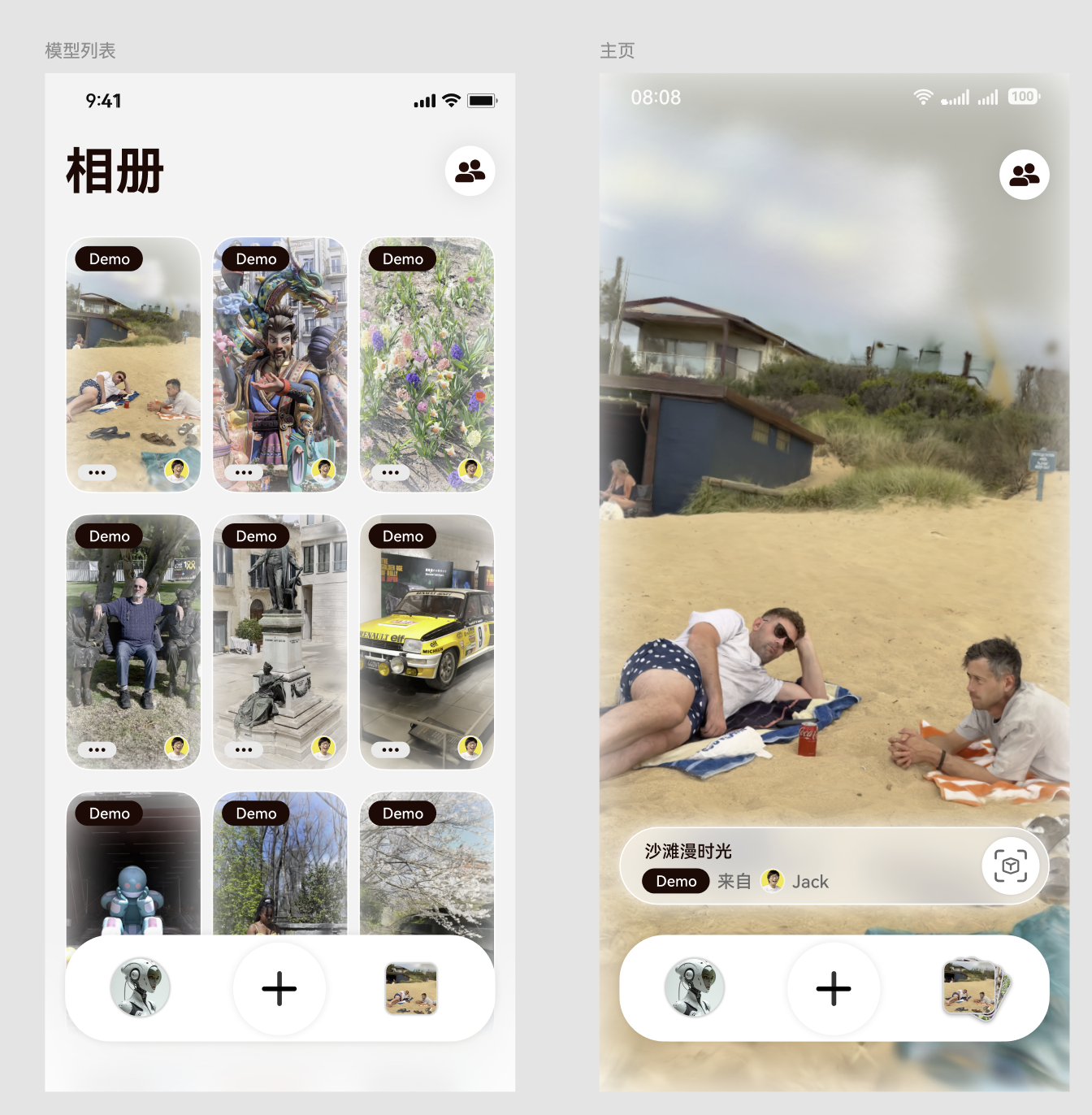
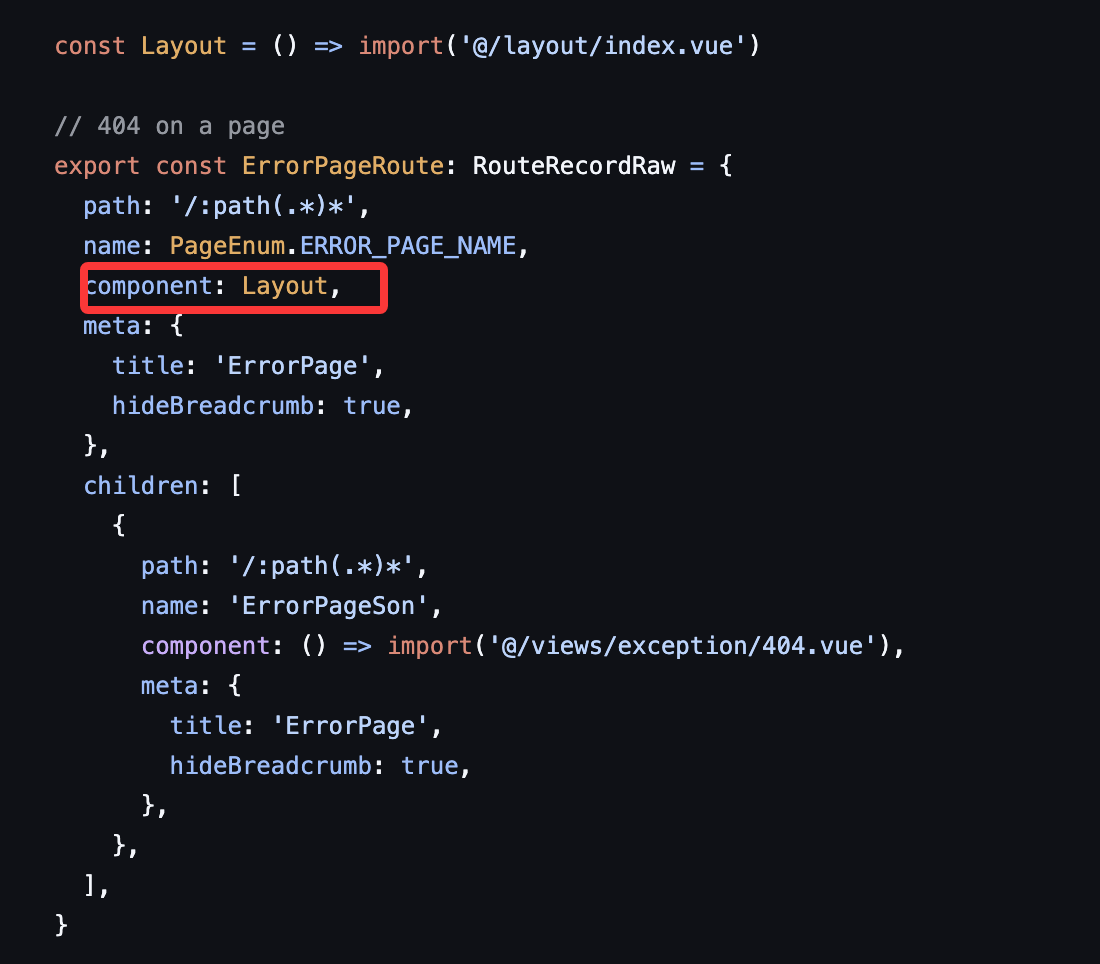
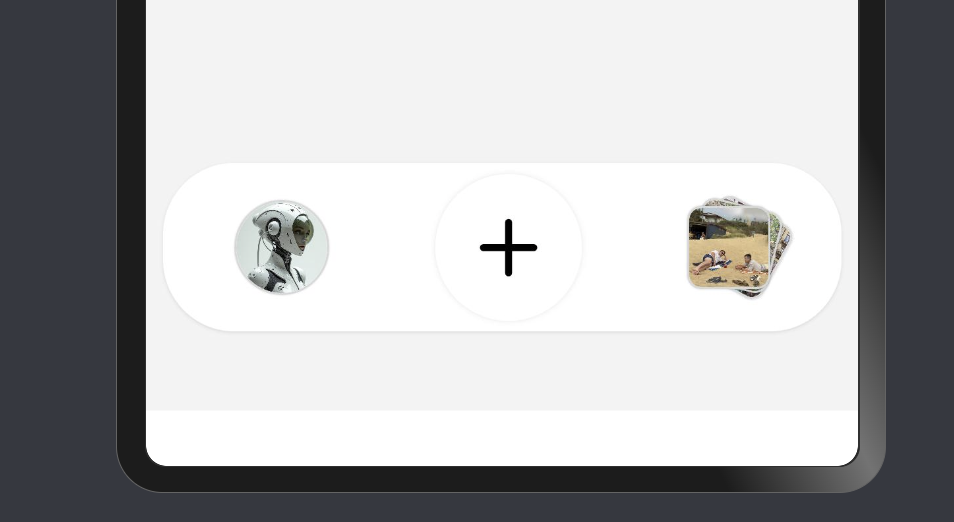
更多关于HarmonyOS鸿蒙Next中可以实现这种自定义的导航栏效果吗的实战教程也可以访问 https://www.itying.com/category-93-b0.html
CSxiangce
@Entry
@ComponentV2
struct CSxiangce {
@Local message: string = 'Hello World';
private daohangqi:NavPathStack = new NavPathStack();
private yuansuzu:string[] = ['壹','贰','叁','肆','伍','陆','柒','捌','玖','拾']
build() {
Stack(){
Navigation(this.daohangqi){
WaterFlow(){
ForEach(this.yuansuzu, (i:string) => {
ForEach(this.yuansuzu, (i:string) => {
FlowItem(){
Text(i)
.height('50')
.width('50')
.borderRadius(50)
.backgroundColor('#ff2f88ef')
.textAlign(TextAlign.Center)
}
.onClick(() => {
this.daohangqi.pushDestinationByName('',{})
})
})
})
}
.height("100%")
.width('100%')
.columnsTemplate('1fr 1fr 1fr 1fr')
.rowsTemplate('1fr 1fr 1fr 1fr 1fr')
.align(Alignment.Center)
.rowsGap(50)
}
.height('100%')
.width('100%')
.navDestination(csXiangqing)
Column(){
Row(){
Button('主页')
.width(70)
.height(50)
Button('添加')
.width(70)
.height(50)
Button('目/详')
.width(70)
.height(50)
}
.height(80)
.margin({bottom:50})
.width('80%')
.borderRadius(50)
.justifyContent(FlexAlign.SpaceAround)
.backgroundColor('#ff709f79')
}
.height('100%')
.width('100%')
.justifyContent(FlexAlign.End)
.hitTestBehavior(HitTestMode.Transparent)
}
.height('100%')
.width('100%')
}
}
@Builder
function csXiangqing(){
xiangqingye()
}
@ComponentV2
struct xiangqingye{
private daohangqi:NavPathStack = new NavPathStack();
build() {
NavDestination(){
Column(){
Text('这是详情页')
}
.height('100%')
.width('100%')
}
.height('100%')
.width('100%')
.onReady((e:NavDestinationContext) => {
if (e?.pathStack) {
this.daohangqi = e.pathStack;
}
})
}
}
效果截图
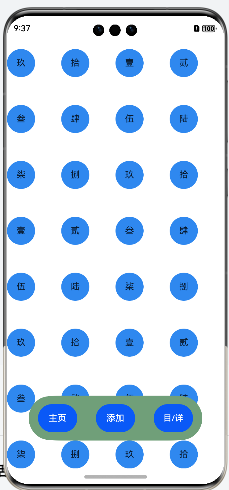
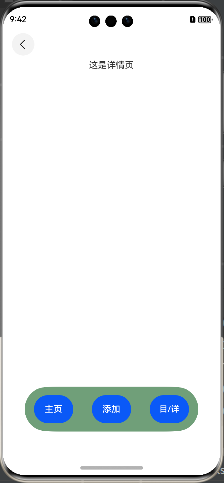
点击“首/详”按钮、列表元素,都可以跳转子页面。
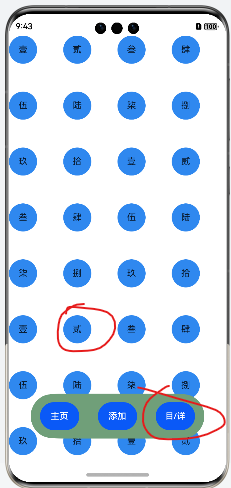
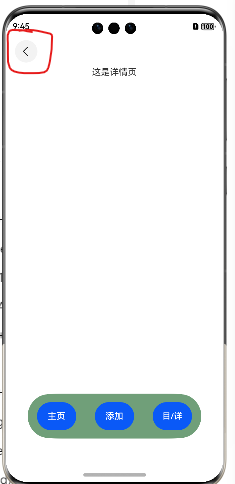
更多关于HarmonyOS鸿蒙Next中可以实现这种自定义的导航栏效果吗的实战系列教程也可以访问 https://www.itying.com/category-93-b0.html
实现方式比较多。
第一种,利用TABS现有能力([https://developer.huawei.com/consumer/cn/doc/harmonyos-references/ts-container-tabs#baroverlap10](https://developer.huawei.com/consumer/cn/doc/harmonyos-references/ts-container-tabs#baroverlap10)。第二种,隐藏tabs(或者使用swiper)页签栏,手搓一个页签栏,在stack容器叠加,然后通过tabscontroller(https://developer.huawei.com/consumer/cn/doc/harmonyos-references/ts-container-tabs#tabscontroller)手动实现翻页效果。
还可以使用自定义页签。
当然,通过stack容器、scroll组件、scrollController控制器、数据展示容器,可以实现想要的大部分效果。组件参考([https://developer.huawei.com/consumer/cn/doc/harmonyos-references/arkui-declarative-comp](https://developer.huawei.com/consumer/cn/doc/harmonyos-references/arkui-declarative-comp))
文档的需求比较复杂,看多了组件文档,自然就知道怎么实现了,直接给写好DEMO这种,估计很少人会发时间去做。因为这个需求没什么收益性。
首先感谢大佬回复,但是我还是有几点不太明白,期待回复
第一种先有的 tabs 做不到这种悬浮效果吧
第二种没看懂什么意思,现在已经把这个 自定义的 navbar 组件写好了,三个按钮三个事件直接绑定路由跳转事件可行吗
我还不明白的是如何做到 在 mainPage(root)视图里只引用这个 navbar 一次,而不是每个 page 都引入一遍这种该如何实现,
方便加个微信吗,想有偿请教这个问题,
很高兴您的认可,本来也不是专业人士,有偿就不需要了,如果真的需要,把需求详细描述下,看看有没有空时间做个DEMO,
在HarmonyOS鸿蒙Next中,可以通过自定义NavigationBar组件实现独特的导航栏效果。开发者可以利用ArkUI框架,结合Flex布局和Component组件,灵活设计导航栏的样式和交互逻辑。通过@State和@Prop等装饰器,动态调整导航栏的状态和属性,满足个性化需求。此外,鸿蒙Next的Ability和Page机制支持导航栏与页面内容的无缝集成,确保用户体验的一致性。






